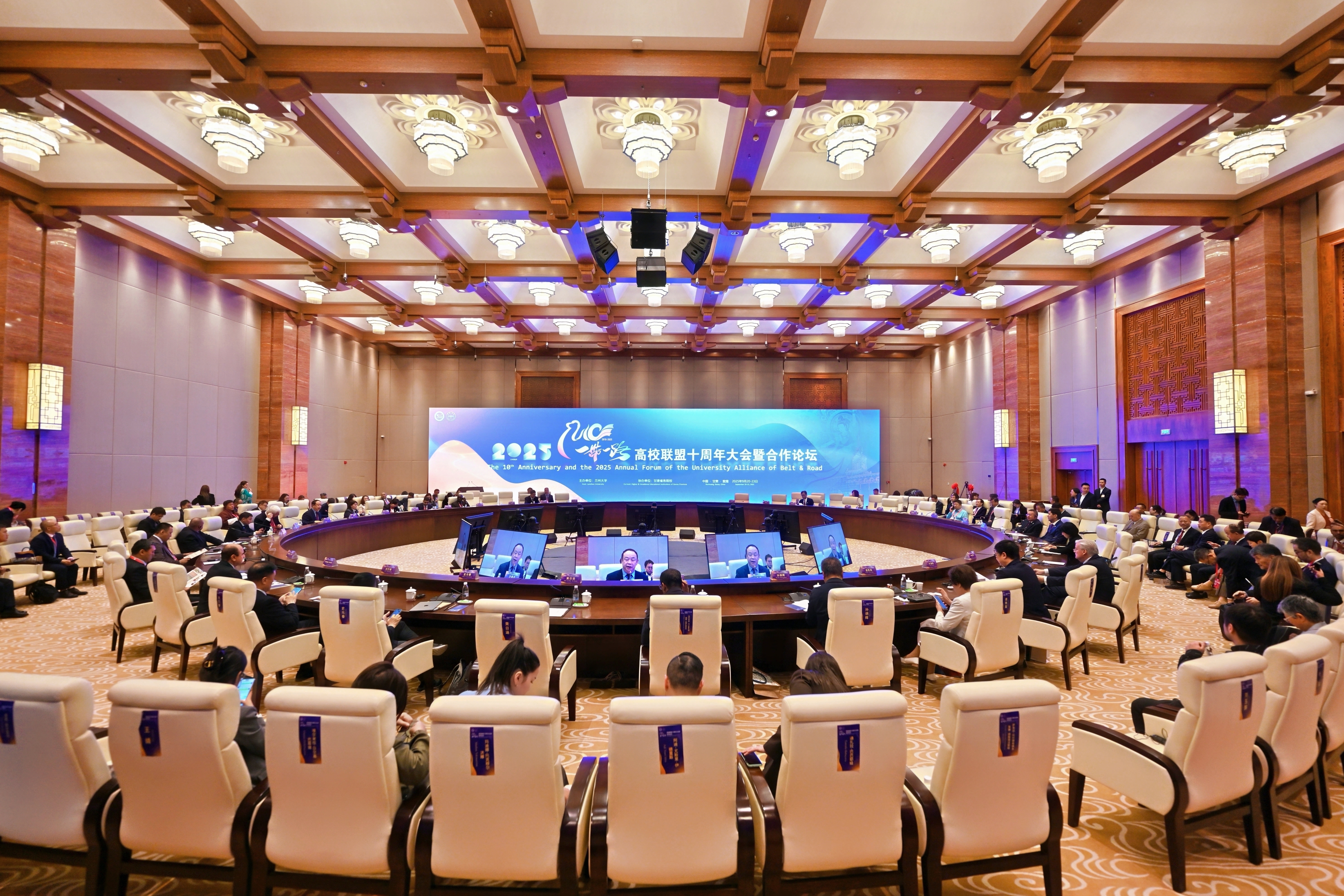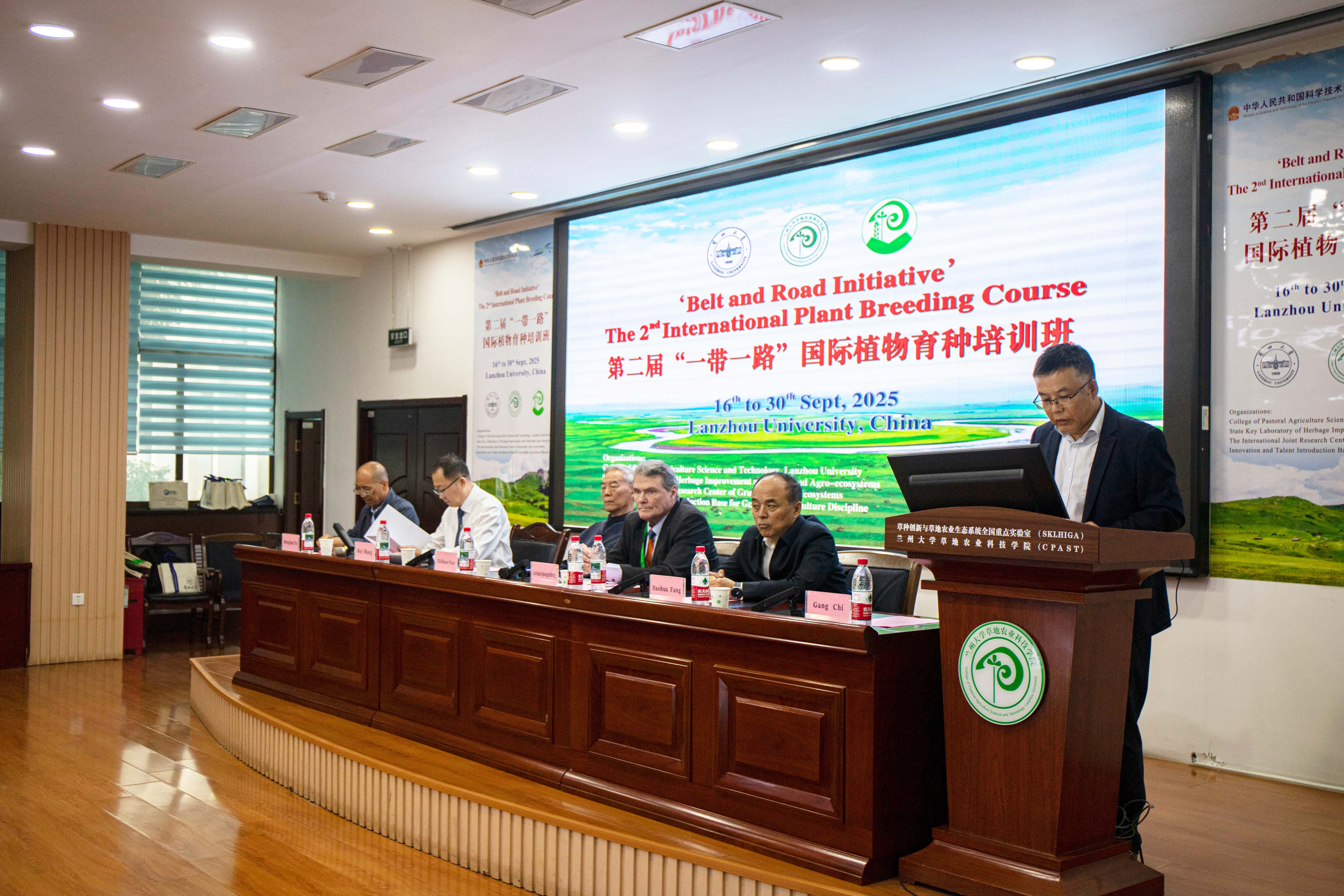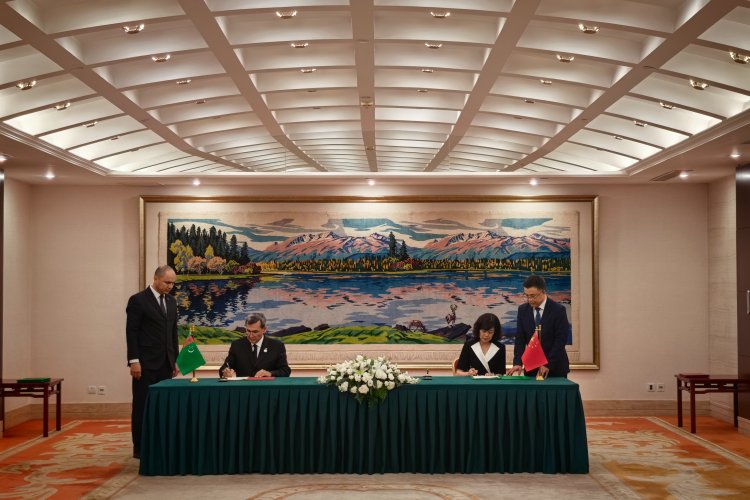To enhance its faculty and students' comprehension of global governance and broaden their international perspective, Lanzhou University invited Fabrizio Hochschild-Drummond, former Under Secretary-General of the UN to conduct academic events on the campus from May 12 to 13. Fabrizio engaged in in-depth dialogues with LZU teachers and students through thematic lectures and fireside talks on such topics as global governance mechanisms, sustainable development practices, and talent cultivation for international organizations. He shared his experience in transnational technological collaboration and public policy making as well.
Fabrizio is also a Senior Advisor and Fellow of Geneva Center for Security Policy, Co-Chair of Advisory Committee, UNITAR Global Sustainable Development Goals and Leadership Development Centre, and Senior Advisor of International Competence Development Committee .
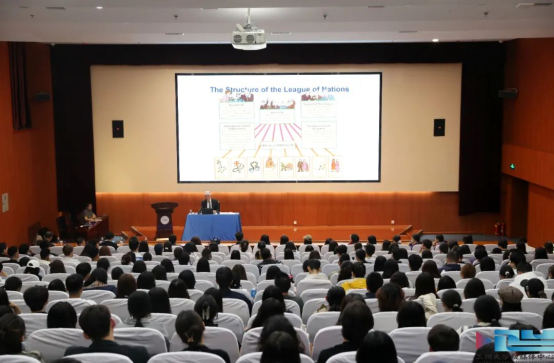
On the morning of May 12, Fabrizio delivered a lecture titled "Historic Achievements and Current Challenges for the UN" at the Chengguan Campus Student Activity Center. The event was chaired by professor ZHU Gang, dean of School of Foreign Languages and Literatures.
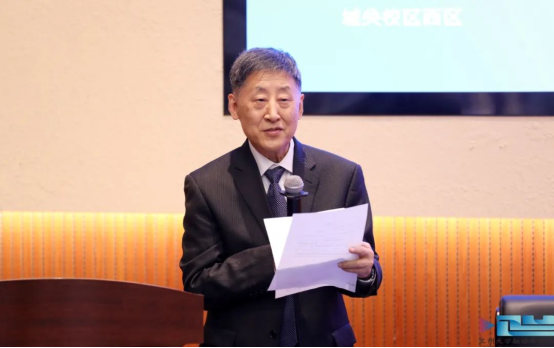
"Countries needed to agree on basic technical standards for communication. This is one of the origins of the United Nations or the first international organizations. One of the very first was the International Telegraphic Union, which today has become the ITU, the International Telecommunications Union, and now does important work on AI regulation, continuing to regulate new technologies to make them international in nature and ensure cross - border functionality," Fabrizio said while tracing the origins of international organizations back to the 19th-century. When reviewing the developments of the UN, he said that its foundation was significant because "the fact that there hasn't been a Third World War, even during the tense Cold War between the Soviet Union and the US, is an achievement."
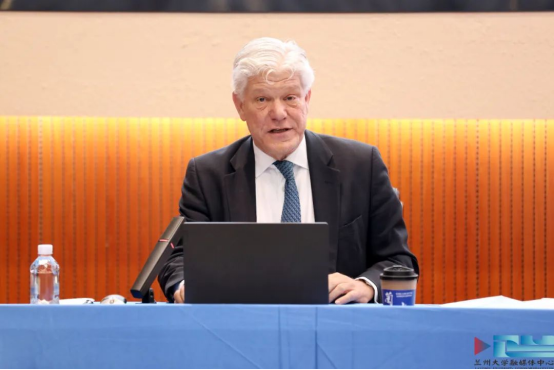
Fabrizio explained the UN's "four pillars" which function in a synergistic way—peace and security, humanitarian aid, sustainable development, and human rights. Using comparative data, he highlighted a recent shift in UN expenditures. "The shift from development to humanitarian affairs reflects the increase in conflicts and emergencies in the world." He especially praised China's role in UN efforts, saying that it "is the only permanent Security Council member deploying military personnel for peacekeeping."
In his lecture, Fabrizio outlined the UN's achievements in areas such as the Millennium Development Goals (MDGs) and Sustainable Development Goals (SDGs), which drove global progress in poverty reduction, education, and healthcare. Besides, landmark documents like the Universal Declaration of Human Rights have significantly advanced global human rights. However, the UN also faces a series of challenges including slow progress in SDG, worsening global hunger, unfulfilled environmental targets, and urgent need for global financial system reform, he observed.
Looking toward the future, Fabrizio proposed forward-looking suggestions such as 1) regulating AI and other emerging technologies to suit global objectives, 2) strengthening international cooperation to address climate change and other issues, 3) reforming the global financial system to alleviate debt burdens in impoverished countries, 4) developing new peace agendas addressing modern warfare technologies, and 5) pushing forward the Pact for the Future to achieve universal digital connectivity by 2030 while safeguarding cybersecurity and public interests.
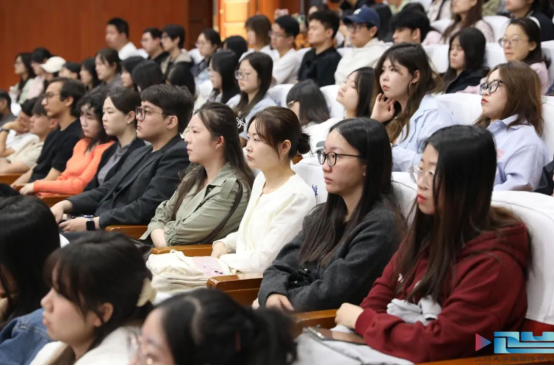
During the Q&A session, the audience raised questions on pressing global issues like international work experiences, public health aid in underdeveloped regions, migration crises, and international relations. Drawing from his rich experience and expertise, Fabrizio provided insightful yet accessible responses. He particularly emphasized the pivotal role of youth in fostering global solidarity, urging them to transcend the false dichotomy between national interests and global good.
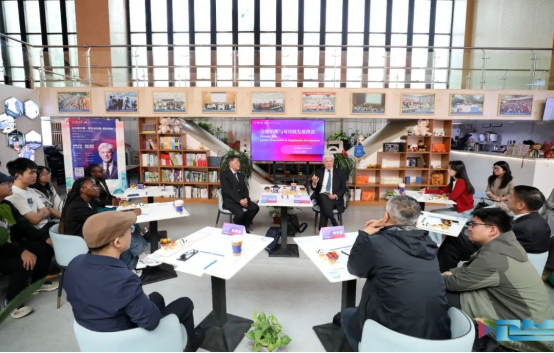
At the university café, Fabrizio engaged in a free talk on global governance and sustainable development with teachers and students from LZU's School of Basic Medical Sciences, School of History and Culture, College of Ecology, School of Foreign Languages and Literatures, School of Politics and International Relations.
Fabrizio emphasized that technology transfer must be integrated with local livelihood security. Based on UN projects in African, he noted that "while promoting drought-resistant crop, systems such as small loans and agricultural insurance are also required, to support farmers during transition periods. Without steady economy, even cutting-edge solutions would fail." Regarding plastic-ban policies triggering demand for alternatives, he proposed multilateral collaboration. "UN agencies can facilitate technology transfer, and global foundations can provide funding. But eco-material R&D must adapt to local economies. It must avoid social tensions caused by high costs."
Talking about decision-making in international affairs, Fabrizio reiterated evidence-based approach. "Climate and public health actions must be based on objective research. For instance, WHO guidelines should strictly follow epidemiological data to guarantee scientific neutrality." He applauded China's growing international engagement and urged its youth to seize opportunities related to international governance. "Although UN bodies recruit less talents due to budget cuttings, long-term demand still exists. Chinese youth should go for academic exchanges and UN internships. They should hone cross-cultural skills to transform local experience into global governance solutions," he said.
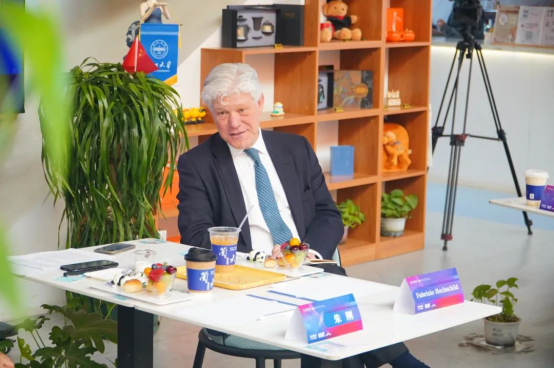
As to humanitarian challenges, Fabrizio analyzed the UN's operational framework through the lens of current global conflicts. "Behind complex conflicts lies different interests of different sides, yet the international community must maintain the neutrality principle of humanitarian law. The UN has established temporary safe corridors to coordinate food and medicine. The global community should work together to advance conflict resolution through international law. We must ensure that civilians' right to survival are not affected by geopolitics."

The attendees of the event also discussed recent developments in international politics. Fabrizio observed that climate change, technological revolution, and geopolitical tensions have combined to make global governance a particularly complex issue. "The younger generation faces more diversified challenges, but international cooperation is still the key to breakthroughs. For instance, water security issues in some areas are solved through collaboration and data-sharing between different nations," he remarked.
Fabrizio looks forward to LZU's program in international organizations and global governance. He suggested that the curriculum should balance theoretical rigor with practical competencies by offering modules like simulated conflict mediation and international negotiation workshops.
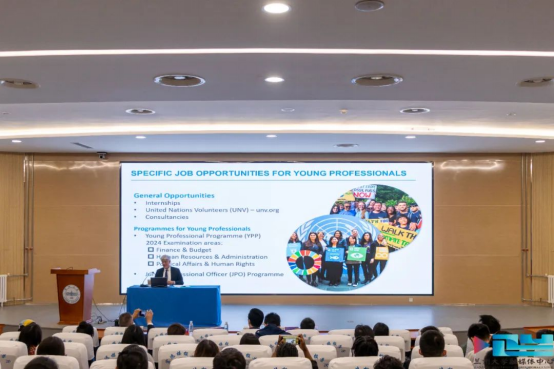
On the morning of May 13, Fabrizio delivered a lecture titled "What Kind of Talents are Needed by International Organizations?" at Hongyuan Building on Yuzhong Campus. He discussed the core competencies and career paths of international civil servants. The event was moderated by LONG Ruijun, deputy director of LZU's Research Center for the Belt & Road and professor at College of Ecology.
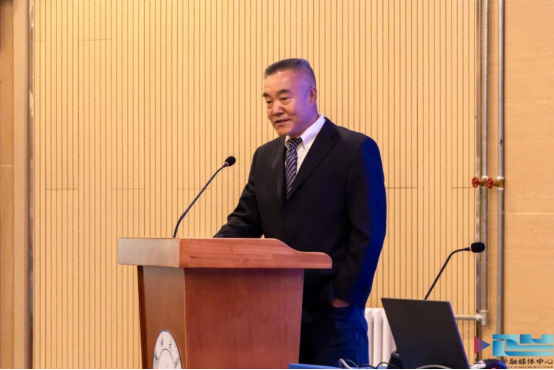
Fabrizio compared his own roles respectively in conflict zones in Africa and at UN New York headquarters. "In Zambia, we distributed supplies directly to refugees. We faced humanitarian crises directly. At the Security Council, however, we had to turn different national positions into a consensus. Both positions required very high adaptability, but the former demanded more courage, and the latter demanded more political wisdom."
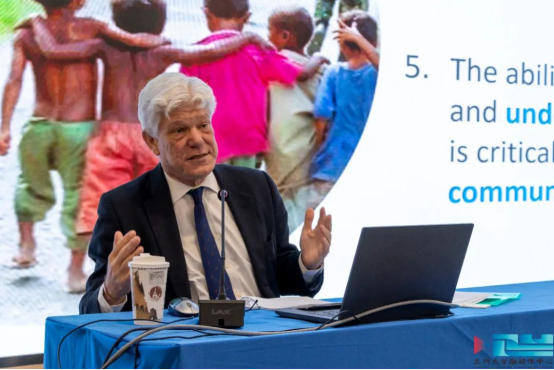
Responding to students' concerns about language proficiency, he offered practical advice, saying that "English is the working language of the UN, but cross-cultural communication lies in understanding different contexts." When discussing how natural sciences and literature can contribute to global governance, Fabrizio noted that "Scientific models are built by scientists, but policy practice demands empathy, emotional intelligence and wisdom cultivated through literature. Data alone cannot achieve this." He also emphasized that "the sense of mission is the cornerstone of an international civil servant. If you want to use the UN merely as a career stepping stone, it will be difficult for you to carry on in a complex environment."
At the end of the event, Fabrizio left an inspiring message for the attending students, encouraging them to work hard on their majors, foster empathy, and translate local efforts to positive global change.

By discussing UN's past achievements, present efforts and talent standards, Fabrizio presented insights on global governance. As he stated in his opening remarks, "Every question plants a seed of ideas, and youth action will be the soil for its growth." His views on international civil servants' core competencies and multilateral collaboration are in tune with the vision of LZU's "Kunpeng Talent Program." The university will continue to turn the blueprint of the program into reality by creating opportunities for its students to participate in simulated UN conferences and field research in Belt and Road countries, becoming abler to apply theories to practice. This dialogue between an UN official and LZU is more than an intellectual exchange; it is a seed which, having taken root in the soil by the Yellow River, carries Chinese youth's aspirations to participate in global governance.


